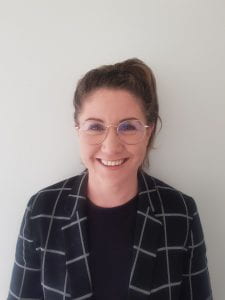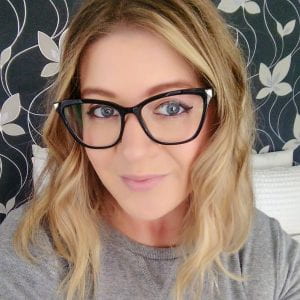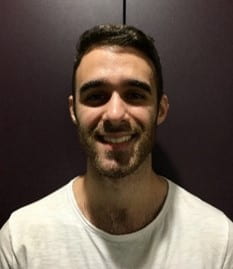People
Dr Gwenda Willis (Gwen)
I am an Associate Professor in the Doctorate in Clinical Psychology training programme at the University of Auckland, New Zealand, Rutherford Discovery Fellow and Clinical Psychologist. My research and clinical interests are in strengths-based approaches to assessment and treatment with adults in forensic/Corrections settings, and understanding and preventing sexual abuse. I have heard many people who have survived sexual abuse ask “Why did this happen to me?” and “How can I stop them doing it again?” These questions led me to work with people who have sexually abused.
I completed my clinical training at the Kia Marama Special Treatment Unit for men who have sexually offended against children (New Zealand), and since then I have worked as a psychologist and researcher in New Zealand, Australia and North America. I am an Editorial Board member for Sexual Abuse and Journal of Sexual Aggression, and member and Fellow of the Association for the Treatment of Sexual Abusers (ATSA).
Dr Angela Carr
Melissa Adam
Tamara Smolinski
I am a clinical psychology student and PhD Candidate at the University of Canterbury. The primary aim of my research is to increase our understanding of the protective mechanisms that promote desistance from sexual offending. My research is guided by a strengths based approach to working with people – what are the things that are going well in an individual’s life that will help them live a good life? I hope that by understanding these factors we may be better able to help those who have harmed others to live safe, purposeful and meaningful lives, thus contributing to the overall safety and wellbeing of individuals, family, whānau and our communities.
Naya Williams
Kō te whanake o te Māramatanga: A Kaupapa Māori approach to exploring pathways to therapeutic engagement for Māori who experience sexual interests in children
Naya Williams (Ngāti Kahungunu ki Wairoa) is currently in her second year of her doctorate of Clinical Psychology at the University of Auckland. She is passionate about Māori mental health and exploring how mental health services can better support the needs of Māori tangata whaiora (service users), their whānau, and a holistic, Te Ao Māori worldview. Naya is completing her doctorate thesis in sexual violence prevention and her doctoral rangahau is titled Kō te whanake o te Māramatanga: A Kaupapa Māori approach to exploring pathways to therapeutic engagement for Māori who experience sexual interests in children. Her rangahau has received funding from the Ministry of Social Development and is contributing to the Stand Strong Walk Tall Pilot of a mainstream service for individuals with sexual interests in children that is launching this year.
Natalie Laupu’e
Identifying Protective Factors for Pasifika Men who have Sexually Offended
My research aims to explore Pasifika sexual offending behaviour, with an emphasis on identifying protective factors associated with desistance from sexual offending. Current risk assessment tools focus on risk factors associated with offending behaviours, to predict the likelihood of reoffending occurring. Gaining a better understanding of protective factors may allow improvements to be made in the way professionals assess and predict risk.

Amy Lawrence
Understanding and Influencing public attitudes to create a supportive and accepting environment for non-offending persons with sexual interest in children.
My research addresses the following key question: What are the societal barriers of creating a supportive and accepting environment for non-offending individuals with sexual interest in children within NZ? This research aims to investigate attitudes towards people with these interests and the levels of public support for a child sexual abuse preventative service in NZ. By better understanding these attitudes, we can explore how they can best be challenged and influenced and better design outreach programmes in NZ.
Alumni
Julia Campbell
DClinPsych
On the Outs: Exploring women’s experiences of rehabilitation and reintegration programmes
This research explored the reintegration experiences of formerly incarcerated women, particularly looking at what aspects of programmes they have found useful in transitioning from prison into the community and what they find most helpful in preventing reoffending.
 Virginia Jones
Virginia Jones
DClinPsych
Experiences of New Zealand psychologists in a changing legislative context
Successive legislative changes in New Zealand have created an increasing requirement for psychologists employed in forensic settings, including Corrections, Courts, and Youth Forensic Services, to provide opinions to be used by legal decision-makers. This research investigated psychologists’ experiences of legal-ethical dilemmas, and what can be done to mitigate them.
Jessie Mee
DClinPsych
The Roots of Resilience
Out of adversity comes resilience; and through resilience those who have suffered can go on to flourish. The Roots of Resilience examined relationships between traumatic childhood experiences, resilience and wellbeing, in New Zealanders aged between 18 and 35. It’s focus was on gaining an understanding of the aspects of resilience apparent in those who are flourishing; but whose early experiences might have readily constrained their capacity to thrive.
 Dr Sophie Dickson
Dr Sophie Dickson
Post-doctoral research fellow
Sophie contributed to several research projects exploring factors that protect against reoffending.
Dr Giulia Lowe
PhD
Jenn Tamati
Clinical Psychology Honours student (2020)
Shane Brown
Caitl yn Drinkwater
yn Drinkwater
Clinical psychology Honours student (2015)
Misinforming the public? How individuals accused of sexual assault are portrayed in the media
Dani el Richardson
el Richardson
Honours student (2015)
Villainous Minorities, Ventriloquial Media: Does ethnicity play a role in how the news media portrays sexual crime?
Clare Stanton
Clinical psychology Honours student (2014)
Nathan Leaming
Clinical psychology Honours student (2014)







